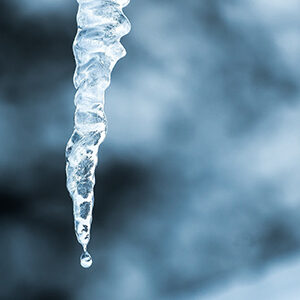
SRHD Encourages Safety Precautions During Extreme Cold Weather
Kelli Hawkins, SRHD | khawkins@srhd.org | 509.324.1539, c 509.994.8968
Spokane, Wash. – In light of the National Weather Service Spokane office’s announcement of dangerously cold temperatures in the forecast for eastern Washington through Thursday, the Spokane Regional Health District (SRHD) is reminding people to take precautions to reduce health risks.
Exposure to cold temperatures can cause serious or life-threatening health problems. Infants and the elderly are particularly at risk, but anyone, including animals, can be affected.
"When the weather is extremely cold, and especially if there is blowing snow, try to stay indoors," said Dr. Francisco Velázquez, Spokane County health officer for SRHD. “To avoid hypothermia and frostbite, make any trips outside as brief as possible, and remember that by preparing for winter emergencies, the risks of weather-related health problems can be reduced.”
Extreme cold presents a dangerous situation that can result in health emergencies in susceptible people, such as those without shelter or who are stranded, or who live in a home that is poorly insulated or without heat.
Preparing for extreme cold
- Stock up on emergency supplies for communication, food, safety, heating and vehicles
- Ready.gov winter weather checklists from ready.gov
- SRHD – Be prepared for emergencies
- SRHD – Extreme Cold Preparedness
- Listen to the radio or television, or follow social media channels, for winter storm forecasts and other information
- Have appropriate cold weather clothing available
- Make sure fireplace functions properly
- Fill your vehicle’s gas tank
During periods of extreme cold
When residents must use space heaters and fireplaces to stay warm, the risk of household fires increases, as well as the risk of carbon monoxide poisoning. Use fireplaces, wood stoves, or other combustion heaters only if they are properly vented to the outside and never use a charcoal or gas grill indoors—the fumes are deadly.
Here are other tips to keep residents safe during extreme cold temperatures:
- If an individual must go outdoors, wear several layers of loose fitting, light weight, warm clothing rather than one layer of heavy clothing. Wear mittens rather than gloves. Wear a hat. Cover mouth with a scarf to protect lungs from extremely cold air.
- Watch for signs of frostbite and hypothermia:
- Signs of frostbite include a white or grayish-yellow skin area, skin that feels unusually firm or waxy, or numbness.
- Signs of hypothermia include slurred speech, disorientation, uncontrollable shivering, stumbling, drowsiness and body temperature of 95 degrees Fahrenheit or less.
- If a resident becomes trapped outside, get out of the wind and stay dry. Build a lean-to or snow cave if nothing else is available. Do not eat snow; it will make you too cold.
- Do not drive unnecessarily.
Pets are at risk of serous health issues or death too
- Keep pets inside.
- If you let them out for any reason, wait and let them back in right away.
- If you have concerns for the safety of an animal that should be indoors, please contact SCRAPS at: (509) 477-2532.
Warming Shelter
The City of Spokane activated a temporary warming center located at the Spokane Convention Center and operated by the Guardians Foundation. The center will be open through noon on Sunday, Jan. 2, 2022. Further information on this shelter and other warming resources, visit the City’s website.
